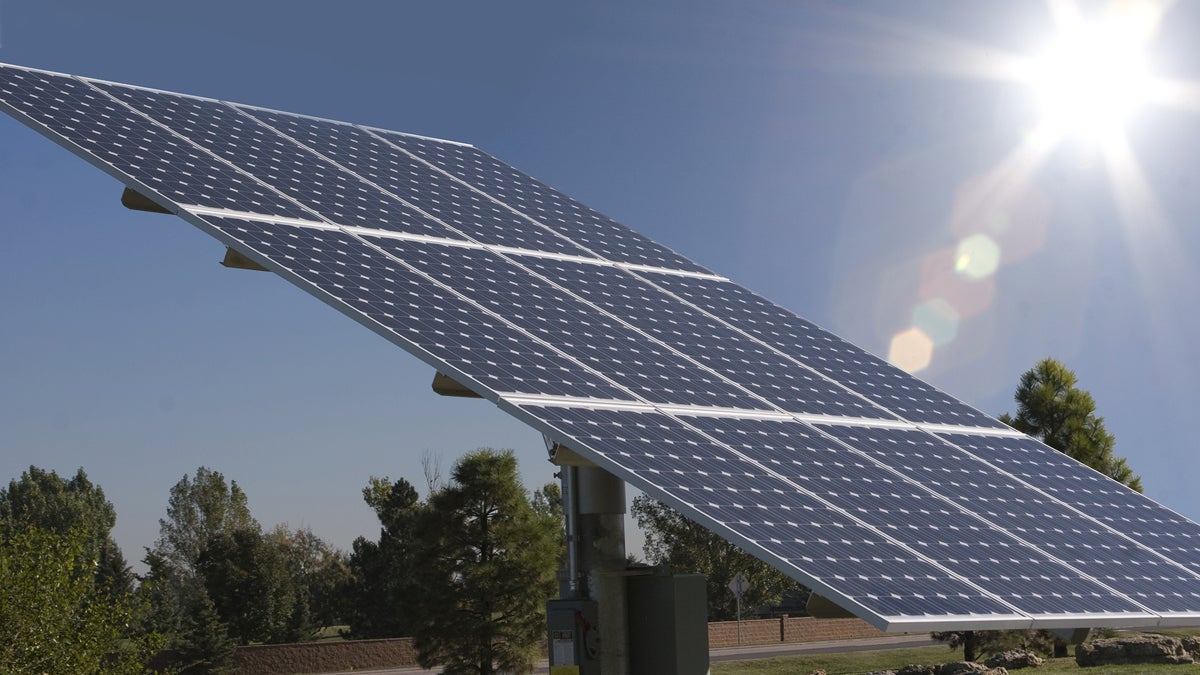Eclipse to dim regional grid’s solar energy supply

Monday's eclipse will cut solar panel's power-generating ability. Regional transmission company PJM is getting ready for interruption.(Lilac Mountain Photography/Bigstock)
When the total solar eclipse darkens skies in the Philadelphia region Monday, it will interrupt the power-generating capacity of solar panels across the region.
During the eclipse, the moon will block the sun’s light from reaching a swath of the Earth across the U.S. Solar panels need the sun to generate power, so they will not work for the duration of the eclipse from noon to 4 p.m. local time.
PJM manages the 13-state electrical grid that includes Philadelphia. About 1 percent of total energy-generating capacity on that grid comes from solar sources, primarily rooftop panels.
As solar power drops off, it will be replaced with electricity from traditional energy sources — such as natural gas and coal — to meet demand.
“It’s going to be a slow drop as that eclipse, and really the impact of the eclipse, moves its way through the footprints,” said Chris Pilong of PJM. “We’ll be prepared to respond with bringing on additional generation to make up for any lost solar and then ramping that generation offline as the solar begins to return to the system.”
The grid constantly balances supply and demand, so if some energy generation disappears and there’s sudden demand to replace it, PJM needs to add just the right amount of electricity to the grid — not more, not less.
This balancing act can get tricky for PJM as more solar comes online, and Pilong said the eclipse is not the only time the company must make adjustments.
“A cloud doesn’t move as quickly as an eclipse is going to move, but if you increase the solar penetration and you have a slow-moving cloud impacting more generation, it is essentially a similar type impact that could be occurring,” Pilong said.
If Monday afternoon happens to be cloudy, Pilong said, the eclipse will essentially be a non-event for the grid.
If it’s sunny, PJM will use the eclipse to test its solar-forecasting applications for accuracy.
“This will definitely definitely help us sort of test our preparations,” Pilong said.
WHYY is your source for fact-based, in-depth journalism and information. As a nonprofit organization, we rely on financial support from readers like you. Please give today.




